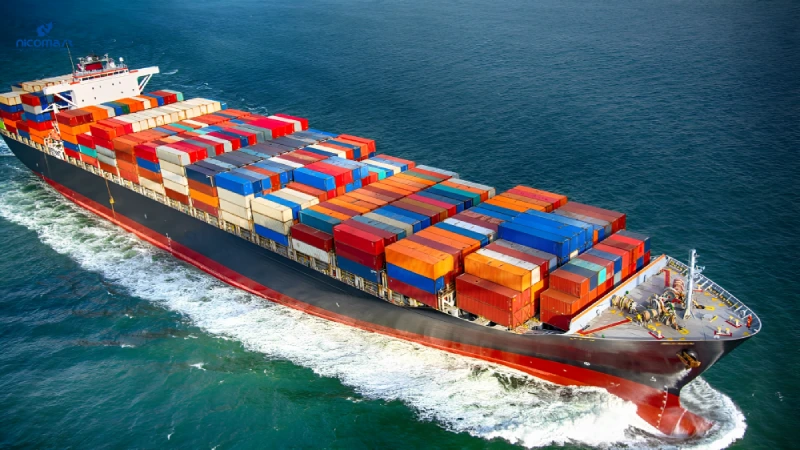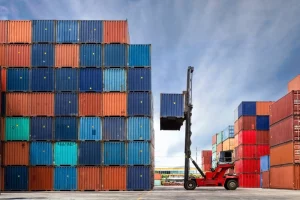In today’s fast-paced global economy, businesses and individuals alike rely on the seamless movement of goods across borders. Overseas cargo transport plays a crucial role in ensuring that products reach international markets in a timely and cost-effective manner. Whether you are shipping raw materials, finished goods, or machinery, choosing the right overseas cargo transport services can make all the difference in the success of your global shipping needs.
فهرست مطالب
ToggleWhat is Overseas Cargo Transport?
Overseas cargo transport refers to the process of moving goods from one country to another via various methods such as ships, planes, trucks, or trains. This international shipping is vital for industries like manufacturing, retail, agriculture, and e-commerce. As businesses expand globally, the demand for reliable, efficient, and secure overseas cargo transport services has grown.
Why Is Efficient Overseas Cargo Transport Important?
Efficient International cargo transport ensures that goods are delivered quickly and safely, minimizing the risk of damage or delays. This is especially crucial for businesses that need to maintain competitive pricing, customer satisfaction, and tight delivery schedules. Moreover, with the right logistics management, businesses can reduce shipping costs, enhance their supply chain efficiency, and improve their overall operational performance.
Key Considerations for Efficient Overseas Cargo Transport
- Mode of Transport The choice of transport mode significantly affects the cost, time, and security of your shipment. Common modes include:
- Sea Freight: Ideal for large and heavy shipments, sea freight is cost-effective for bulk cargo.
- Air Freight: Best for time-sensitive or high-value goods, air freight ensures faster delivery but at a higher cost.
- Land Transport: Often used for short distances, land transport (trucks and trains) complements sea or air shipping.
Choosing the right mode is essential for balancing cost and delivery speed.
- Shipping Routes and Timelines The efficiency of overseas cargo transport is largely influenced by the shipping routes and timelines chosen. Major shipping hubs such as New York, Shanghai, and Rotterdam offer well-established routes, ensuring timely deliveries. However, selecting less-popular routes may require more time for customs processing, which can delay the shipment.
- Customs and Documentation Every shipment needs to comply with international trade regulations. Efficient overseas cargo transport services have a team of experts who handle customs procedures and ensure that all necessary documentation (such as bills of lading, invoices, and certificates of origin) is properly prepared. This minimizes the chances of delays due to non-compliance.
- Cargo Tracking and Monitoring Modern technology has revolutionized overseas cargo transport. With the advent of tracking systems, businesses can monitor their cargo in real-time, giving them the ability to make adjustments or respond quickly to unforeseen issues. By staying updated on the location and condition of the shipment, companies can ensure smooth and uninterrupted transport.
- Cargo Packaging Proper packaging is essential for safeguarding goods during overseas cargo transport. Different types of goods require specific packaging materials to prevent damage. Fragile items may need extra padding, while perishable goods might require refrigeration. Efficient transport services often provide packaging recommendations to ensure goods are securely transported.
- Insurance and Risk Management While overseas cargo transport is generally safe, unexpected risks can occur, such as accidents, natural disasters, or theft. Reputable cargo transport services offer insurance options to cover potential damages or losses. Choosing the right insurance plan helps mitigate financial risks associated with international shipping.
Best Practices for Choosing an Overseas Cargo Transport Service
When selecting a service provider for International cargo transport, businesses should consider several factors to ensure they choose the best partner for their shipping needs.
- Experience and Reputation: Look for a company with a solid track record in the industry. Established providers will have a better understanding of international shipping and customs procedures.
- Global Reach: A provider with a vast network of partners and agents can offer more shipping options, including access to multiple transport modes and shipping routes.
- Customer Service: Efficient customer support is crucial for troubleshooting issues and handling last-minute changes. Ensure the company offers 24/7 support to assist with any emergencies.
- Cost and Transparency: Compare prices from different service providers. Be wary of hidden fees and always ask for a detailed breakdown of costs before committing to a contract.
Challenges in Overseas Cargo Transport
Despite the benefits, overseas cargo transport comes with its own set of challenges. These include:
- Customs Delays: Issues such as incorrect documentation or non-compliance with local laws can result in significant delays at the border.
- Rising Fuel Costs: Transportation costs, particularly for air freight and sea freight, can fluctuate with changes in global fuel prices, which directly impacts shipping expenses.
- Environmental Regulations: Many countries have strict environmental regulations on cargo transport, requiring businesses to comply with standards related to emissions, waste management, and other sustainability efforts.
However, with careful planning and strategic management, these challenges can be overcome, ensuring smooth and efficient transport operations.
The Future of Overseas Cargo Transport
As e-commerce continues to grow, so does the need for innovative, efficient International cargo transport services. Advances in digital technologies, automation, and artificial intelligence are expected to play a major role in streamlining operations. Companies are exploring options like blockchain for secure and transparent shipping, and drones or autonomous vehicles for faster delivery. The future looks bright for global shipping as these technologies help businesses meet the increasing demand for faster, more reliable services.
Frequently Asked Questions (FAQs)
1. What is the best method for overseas cargo transport? The best method depends on the size, weight, and urgency of the cargo. Sea freight is economical for large shipments, while air freight is faster but more expensive. Land transport is used for short distances or as part of multimodal transport.
2. How long does overseas cargo transport take? The time varies depending on the origin and destination. Sea freight may take several weeks, while air freight can deliver within days. Always check with your service provider for specific timelines.
3. Do I need cargo insurance for overseas shipping? It is highly recommended to insure valuable or fragile items. Most transport companies offer insurance to protect against damage, loss, or theft during transit.
4. How can I track my International cargo transport? Most modern overseas cargo transport services provide tracking tools that allow you to monitor your shipment’s status in real time. Check with your service provider to see if they offer this feature.
5. What documents are required for International cargo transport? Essential documents include the bill of lading, commercial invoice, packing list, and certificate of origin. Your transport company will guide you through the documentation process.
6. How do I choose a reliable International cargo transport provider? Look for a provider with a proven track record, global reach, competitive pricing, and strong customer service. It’s also helpful to read reviews and get recommendations from others in your industry.
Conclusion
Efficient overseas cargo transport services are a cornerstone of global trade, helping businesses navigate the complexities of international shipping. By choosing the right provider and understanding key factors such as transport modes, customs processes, and cargo insurance, you can ensure that your goods reach their destination safely, on time, and at a reasonable cost. As the industry continues to evolve, embracing technology and best practices will allow businesses to stay ahead in the competitive world of global shipping.




